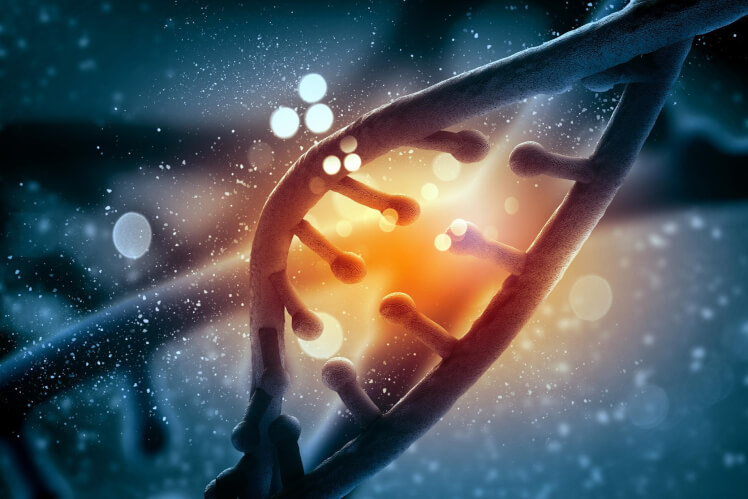**This article also appears on Caredash.com
The field of genetics has heated up in the last few years, and the development of personalized genetic testing has driven this revolution. These tests allow doctors to analyze your DNA to create a personalized wellness plan. A number of companies, such as 23andMe and Ancestry.com, advertise DNA testing. People initially ordered these tests to learn about their family tree, but they can also offer key insights into your health. These insights may even help you avoid illness.
We once thought your genes were your destiny — that if you had a gene for a disease, then there was no way you could avoid getting diagnosed with that disease. It turns out that’s not really how it works. For example, you can have genes that predispose you to type 2 diabetes, but eating a Mediterranean diet can ‘turn off’ those genes. This lowers your risk, and demonstrates that the choices you make matter as much, and maybe even more, than your genes. Research has come a long way, and we continue to see scientific studies in the field of epigenetics. Epigenetics is the study of how the environment changes genes. Factors such as how much you sleep and eat, how you manage stress, and where you grow up can change gene expression—turning some genes on and others off
That’s just the tip of the iceberg in the field of genetic research. You might be surprised to learn just how much of your life your genes can affect.
- You may have a genetic sweet tooth
Scientists have discovered that our genes can influence the foods we like. A “sweet tooth” might even trace back to your DNA. A 2008 study looked at this phenomenon. Researchers looked at people with diabetes who were either obese or with healthy weights. People with a specific genetic variant ate more sugar. This suggests that the gene may have influenced people’s tastes, potentially also increasing their risk of obesity and related conditions. - There is a specific diet that matches your DNA
Ever wonder why your friend can experience amazing results from a diet that does nothing for you? The answer might lie in your DNA. It turns out that the right balance of macronutrients for you—fat, carbohydrates, and protein—may be genetic. Research has shown that eating the right foods for your specific makeup can influence your overall health. A study conducted at Stanford University in 2010 found that people who ate the right diets for their genetic makeup lost 250% more weight than those who ate diets not matched to their genes. A diet informed by genetics also lowered cholesterol in study participants. Discovering the right diet according to your genes is as simple as offering a saliva sample. For some, the results may point toward a low-fat or low-carb diet, while others might do best on a Mediterranean diet. - Intensive training with weights might be making you fat
A rare change to a gene called INSIG2 can cause weight training to backfire. If you have it, you might gain fat instead of muscle when you lift weights. Research suggests the problem is that the body responds to resistance training by depositing fat in the muscle instead of building muscle. If you are planning to try weight training, or already experiencing a negative side effect when lifting, a genetic test would reveal if you are affected by this genetic condition. - You may be prone to certain vitamin deficiencies.
Genetic variants can affect your health even when you eat an organic, local, whole foods diet. To be properly nourished, your body has to convert the food you eat into various chemicals your body can use. A common genetic variant can undermine this process. A mutation to a gene known as MTHFR alters the way the body processes folic acid. To use folic acid—which prevents neural tube defects in pregnancy and plays a role in a wide variety of functions in the body—the body has to convert it to methylfolate, the activated form of folic acid. MTHFR mutations undermine the body’s ability to accomplish this. Mutations in MTHFR are linked to a wide range of issues, including mood and behavioral disorders, infertility, recurrent miscarriages, cardiovascular disease, and polycystic ovarian syndrome (PCOS).
Your genes can influence your destiny, but they don’t determine it. The choices you make truly can change your genes. Knowing which genes you have, and how they may affect your health, can inspire you to make better health choices. Ask your primary care provider about genetic testing options, particularly if you have a specific health problem, or a family history of genetic diseases.Citations
1. Eny KM, Wolever TM, Fontaine-Bisson B, El-Sohemy A. Genetic variant in the glucose transporter type 2 is associated with higher intakes of sugars in two distinct populations. Physiol Genomics. 2008 May 13;33(3):355-60.
2. Mindy Dopler Nelson, Prakash Prabhakar, Venkateswarlu Kondragunta, Kenneth S Kornman, Christopher Gardner. Genetic Phenotypes Predict Weight Loss Success: The Right Diet Does Matter. (Oral Presentation #4). Presented at the American Heart Association’s Joint Conference – 50th Cardiovascular Disease Epidemiology and Prevention and Nutrition, Physical Activity and Metabolism – 2010, March 2-5, 2010, San Francisco, CA
3. Orkunoglu-Suer FE, Gordish-Dressman H, Clarkson PM, Thompson PD, Angelopoulos TJ, Gordon PM, Moyna NM, Pescatello LS, Visich PS, Zoeller RF, Harmon B, Seip RL, Hoffman EP, Devaney JM. INSIG2 gene polymorphism is associated with increased subcutaneous fat in women and poor response to resistance training in men. BMC Med Genet. 2008 Dec 23;9:117.

